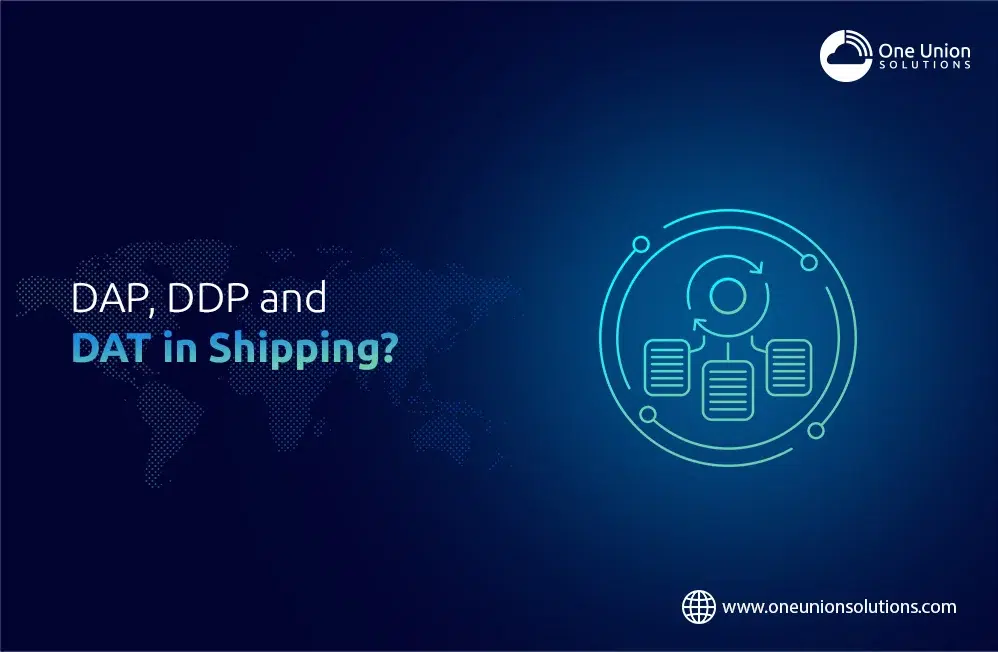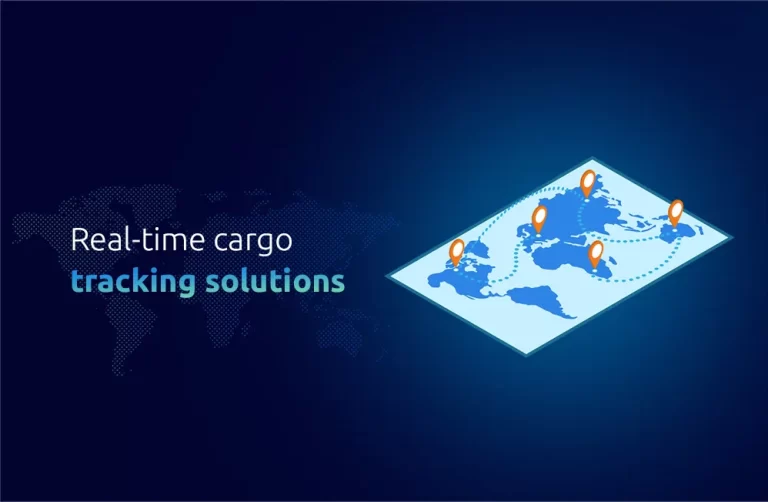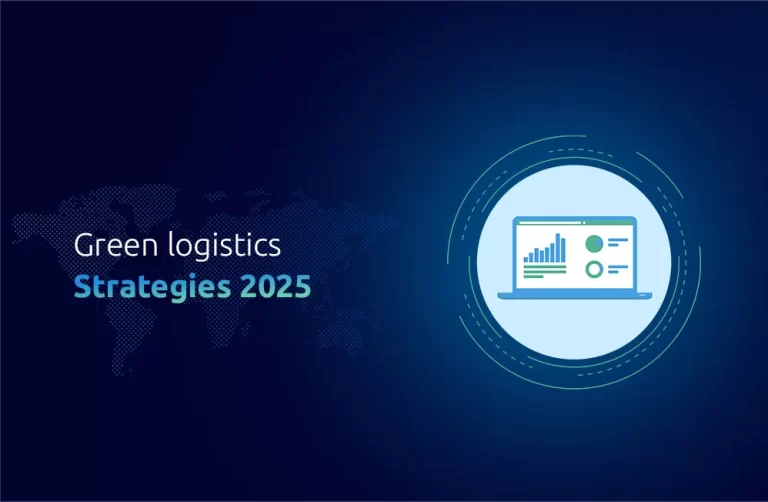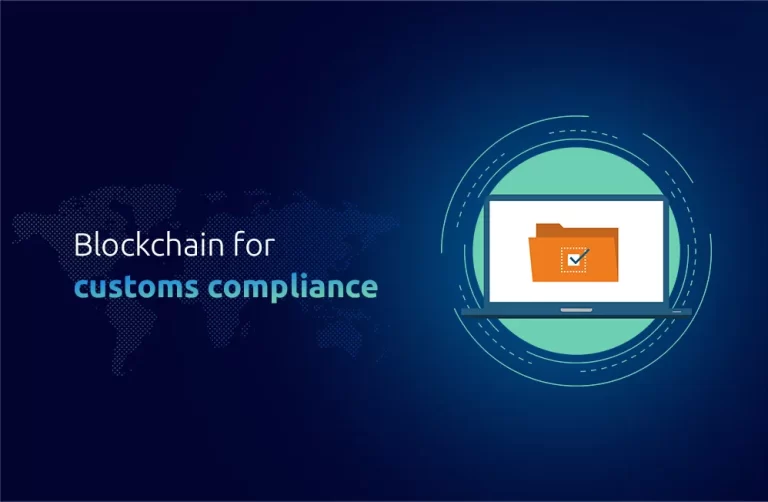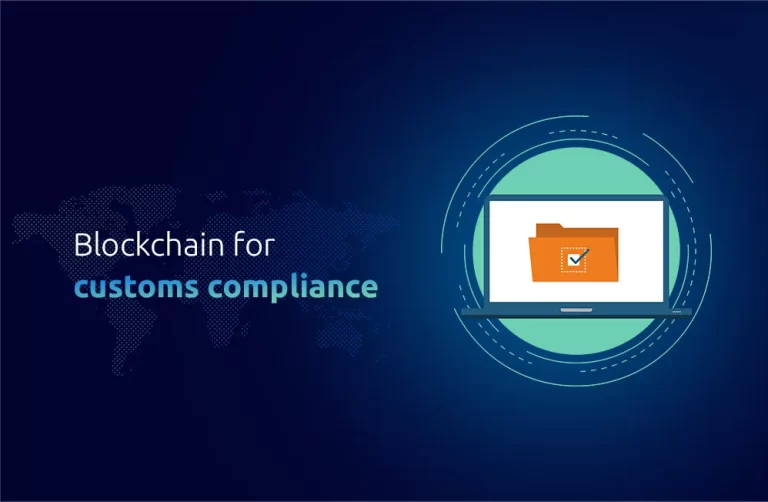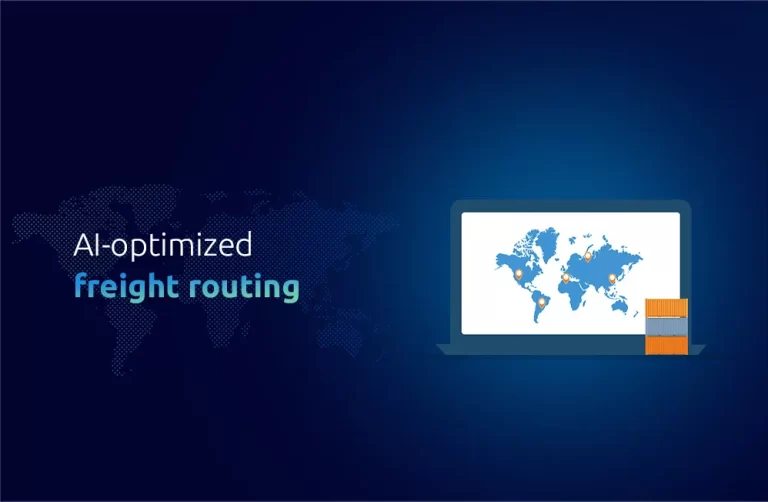Understanding DAP, DDP, and DAT Shipping Differences in the Shipping Process
Selecting an Incoterm that aligns with shipping processes is of utmost importance thing in global trade & logistics, particularly to secure smooth operations of the common Incoterms like DAP (Delivered at Place), Delivered Duty Paid, & DAT (Delivered at Terminal), these three can sometimes confuse the businesses.
To optimize logistics, it’s essential to understand the differences among delivery terms, particularly within the international trade & shipping operations. DAP, DDP, and DAT have often utilized Incoterms but are often misunderstood by those involved with shipping processes.
We will explore these terms and outline their responsibilities at each stage of the shipping process. It also defines their differences and highlights their duties at different stages.
Delivery at Place (DAP)
This is an Incoterm in which the seller takes all the shipping-related liability. According to this understanding, the seller will take all reasonable steps to make sure that the goods reach the designated place and will bear all associated risks and expenses until the things are prepared for unloading at that site. Unloading the products, managing any additional shipping, & completing customs clearance fall under the buyer.
DAP requires the seller to cover all shipping expenditures and import & export taxes until the equipment reaches the designated place. Clients who select a hassle-free shipping experience will find it attractive as it presents a clear split of responsibilities.
DDP – Delivered Duty Paid
In contrast to DAP, the seller accepts an even higher degree of duty under this incoterm. Under a DDP agreement, the seller assumes all import duties, taxes, and customs clearance in addition to the cost of transportation and delivery to the predetermined location. The buyer has minimal responsibility until the goods are delivered and ready for use.
For buyers who prefer a hands-off process to shipping, DDP is a comprehensive option since the seller handles every step of the process, including navigating the intricate customs processes and paying applicable tariffs.
However, sellers typically account for these additional duties in the total cost of the transaction.
DAT ( Delivered at Terminals)
A compromise between DAP and DDP is provided by delivery at the terminal or DAT. Under a DAT agreement, the equipment must be transported by the seller to a designated terminal at the destination port. After that, the buyer is in charge of handling the unloading of commodities as well as the transportation, import taxes, and customs clearance.
With the flexible DAT option, purchasers can exert more control over the last phases of the shipping procedure. The buyer assumes responsibility for the items once the vendor delivers them to a specified terminal and pays the initial transit expenses.
When both parties wish to split expenses and obligations, this incoterm is frequently chosen since it offers a fair and equitable method of shipping internationally.
The DAP Shipments Expertise :
Our logistics department offers end-to-end solutions to companies choosing DAP shipping conditions. From the point of origin to the predetermined destination, a seamless transportation process is guaranteed by the company’s vast network and experience. One Union Solutions handles all aspects of logistics related to transportation, guaranteeing that the commodities arrive at the designated location undamaged.
Furthermore, we are aware of how critical it is for DAP transactions to be transparent. Buyers and sellers may track the shipment’s progress at every stage, thanks to the company’s real-time tracking and updates.
This dedication to transparency makes sure that everyone knows exactly when the goods are going to arrive, which makes greater collaboration and planning possible.
DDP Magnificence
When it comes to DDP shipping, One Union Solutions is a dependable partner that handles every aspect of the job. We manage every step of the shipping process, from delivery & transportation to customs clearance and duty payments.
With this all-inclusive strategy, customers can concentrate on their primary business operations while our logistics handles the complexities of international trade laws.
Because of our dedication to compliance, there are no delays or issues at the destination. All import fees and taxes are paid on time. Businesses seeking a hassle-free solution will benefit from a seamless DDP experience since the team’s experience encompasses the subtleties of worldwide trade.
DAT Providers
We provide customized solutions for DAT shipping in response to the growing need for flexibility in shipping arrangements.
A dependable and effective service is guaranteed by the company’s proficiency in overseeing the preliminary phases of transportation to the terminal at the target port. To facilitate a seamless transfer of responsibility at the appointed location, we closely collaborate with purchasers to establish the terminal specifications.
In addition, we work with purchasers to create a detailed strategy for the following phases of the shipping procedure. For all post-terminal activities, including inland transportation and customs clearance, we offer strategic advice to maximize the logistics process as a whole.
Customs Compliance, Documentation, and Risk Reduction Approaches
DAP: Logistic companies are responsible for overseeing the transportation logistics under this program, but it also offers invaluable support for customs documentation. This entails getting ready and submitting the required documentation to ensure a seamless customs process at the destination.
Up until the products are prepared for unloading at the designated location, the seller bears the majority of the risk. To lessen the possibility of delays or damage during shipment, we use risk mitigation techniques like route optimization and real-time monitoring.
DDP: While we manage all the paperwork needed for import clearance, they play a proactive role in customs compliance. This entails filling out customs declarations correctly, paying taxes and charges on time, and making sure that all applicable laws are followed.
A thorough approach to DDP shipping incorporates techniques for risk assessment and reduction. Due to the company’s experience managing the difficulties associated with international trading, possible hazards are recognized and taken preventatively.
DAT: We offer advice on the paperwork needed for the next steps in the shipping procedure once the buyer takes over at the terminal. This cooperative approach facilitates purchasers’ effective navigation of customs procedures.
To evaluate and reduce risks related to the buyer’s assumption of duty at the terminal, we work with buyers. This entails revealing possible problems and presenting fixes to streamline the logistical procedure.
Conclusion
Choosing One Union Solutions appropriate incoterm is essential for effective and successful logistics operations in the ever-changing world of international trade. DAP, DDP, & DAT represent different strategies for allocating responsibilities between buyers and sellers. Understanding the slight differences between each term enables organizations to make decisions that are in line with their purposes and preferences. Shipping is more secure when a reputable logistics provider, like One Union Solutions, is partnered with you. A master at negotiating the hurdles of global trade, we offer a comprehensive solution that covers DAP, DDP, and DAT shipments. Businesses may fully acknowledge the potential of their international supply chains by utilizing their knowledge and dedication to client pleasure.
Did You Know,
More than 11 billion tons of goods were moved by the international shipping sector, emphasizing its huge effect on the economic health of the planet in the year 2020.
FAQ’s
- What is the difference between DAP & DDP?
Ans: The buyer is answerable for import duties and customs clearance in DAP, whereas in DDP, the seller takes on the responsibilities.
- Who handles customs in a DAT shipment?
Ans: Under DAT, the buyer manages customs clearance once the goods reach the terminal.
- Is DDP shipping more expensive than DAP?
Ans: Yes, DDP freight is usually more expensive because the seller covers all duties, taxes, and customs costs.
- What types of businesses benefit from DDP shipping?
Ans: Businesses that prefer a hands-off approach and want the seller to manage all logistics and customs processes will benefit from DDP.
- Can One Union Solutions assist with DAP shipments?
Ans: Yes, One Union Solutions offers complete DAP shipping services, ensuring smooth and transparent logistics from the point of source to delivery.

